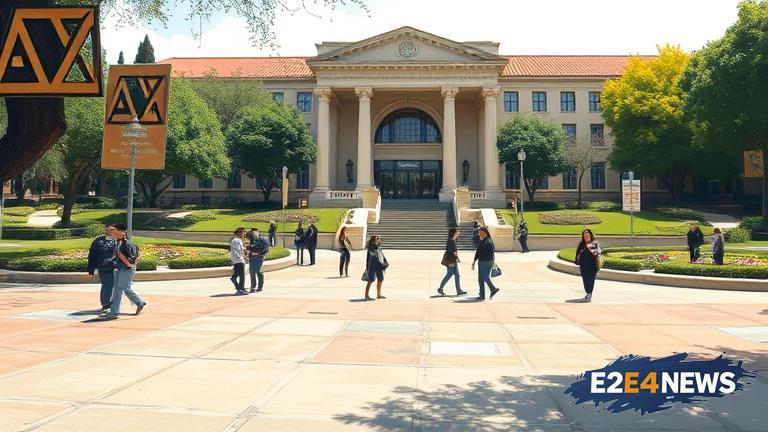The University of California, Los Angeles (UCLA) has reached a significant settlement with a group of Jewish students and a professor, agreeing to pay $6 million in damages. The lawsuit, which was filed in 2018, alleged that the university failed to protect the students and professor from harassment and discrimination during campus protests. The protests in question were related to the Israeli-Palestinian conflict and had been ongoing for several years. The plaintiffs claimed that they were subjected to a hostile environment, with some students and faculty members making anti-Semitic comments and engaging in intimidating behavior. The university had initially denied any wrongdoing, but ultimately agreed to the settlement. The $6 million payout is one of the largest of its kind, and is seen as a major victory for the Jewish community. The settlement also includes a number of non-monetary provisions, such as the creation of a new office to handle complaints of discrimination and harassment. The university has also agreed to provide training to students, faculty, and staff on how to recognize and respond to anti-Semitic behavior. The lawsuit was brought by a group of eight students and one professor, who alleged that they had been subjected to a range of discriminatory behaviors, including being called ‘Nazis’ and ‘Zionists’ and being excluded from campus events. The plaintiffs also claimed that the university had failed to adequately respond to their complaints, and had instead allowed the hostile environment to persist. The case has been closely watched by civil rights groups and Jewish organizations, who see it as an important test of the university’s commitment to protecting the rights of all students. The settlement is also seen as a significant blow to the Boycott, Divestment, and Sanctions (BDS) movement, which has been active on many college campuses in recent years. The BDS movement has been criticized by many as being anti-Semitic, and the settlement is seen as a major setback for the movement. The university has stated that it is committed to creating a safe and inclusive environment for all students, and has taken steps to address the concerns raised by the plaintiffs. The settlement is also seen as a major victory for the Lawfare Project, a non-profit organization that has been working to combat anti-Semitism on college campuses. The Lawfare Project had provided financial and legal support to the plaintiffs, and had played a key role in negotiating the settlement. The case has also highlighted the need for universities to take a more proactive approach to addressing anti-Semitism and other forms of discrimination on campus. Many universities have been criticized for failing to adequately respond to complaints of harassment and discrimination, and the settlement is seen as a wake-up call for institutions of higher education. The settlement is also seen as a significant step forward for the Jewish community, which has long been concerned about the rise of anti-Semitism on college campuses. The case has also sparked a wider debate about the limits of free speech on campus, and the need for universities to balance the right to free speech with the need to protect students from harassment and discrimination. The settlement is seen as a major victory for those who argue that universities have a responsibility to protect students from anti-Semitic behavior, and that the right to free speech does not include the right to engage in hate speech. The case has also highlighted the need for greater awareness and education about anti-Semitism and its impact on the Jewish community. The settlement is seen as a major step forward in this effort, and is expected to have a significant impact on the way that universities approach issues of anti-Semitism and discrimination on campus.
